5 Great Speeches by Great People That the World Remembered
Human history is rich with events that have shaped civilization. But what if we told you that quite often, it was a simple word that changed history?

The words of people who were listened to, who, thanks to their words and the skill with which they chose them, became drivers of global change. You can probably recall at least one speech given by someone great that inspired you too, or that you at least simply know about. In reality, there have been hundreds of such speeches, but we've selected five of the most striking and talented, ones that offer a lesson to be learned. After all, each of us secretly dreams of leading the masses, and the first step on the path to that is becoming an outstanding speaker!
Great Speech #1: "I Have a Dream" by Martin Luther King Jr. (1963)
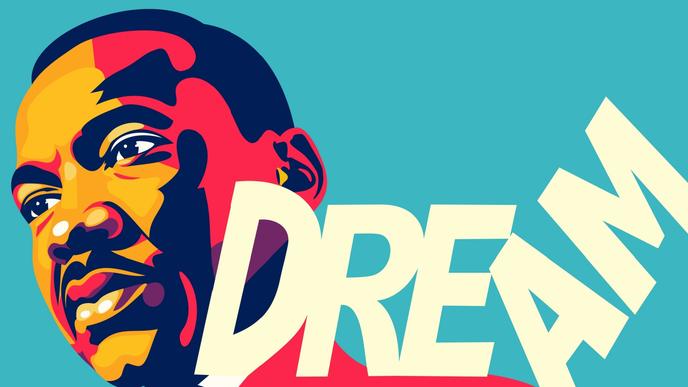
Martin Luther King Jr., pastor and leader of the Civil Rights Movement in the United States, became a symbol of the fight for racial equality and justice. His speech "I Have a Dream," delivered on August 28, 1963, during the March on Washington for Jobs and Freedom, is one of the most iconic speeches of that era. The speech was given before a huge crowd gathered at the Lincoln Memorial and was broadcast on television across the country.
In his speech, King expressed his hope for a future where racial discrimination and segregation would disappear, and where all people would be equal before the law. He spoke of his dream that his children would one day live in a nation where they would be judged not by the color of their skin, but by their actions and character. This dream became a symbol of hope for millions of African Americans who had endured decades of oppression and discrimination.
As for King's speaking technique, it was also impeccable. He used anaphora (repeatedly stating the phrase "I have a dream," thereby leading to a whole range of different thoughts), metaphors, allusions to the Bible and the United States Declaration of Independence (thereby comparing one to the other and elevating the latter to the absolute importance). A distinctive feature of Luther King was also that he, coming from a simple family, was able to speak in simple language, understandable and accessible, thereby accumulating the emotions of the general public and the audience, which consisted mainly of similar families. Subsequently, his speech accelerated the passage of civil rights laws and initiated the process of integrating African Americans into American society, and also became an informal anthem of the struggle for justice and freedom.
What useful things can you borrow? When preparing a speech, choose one key phrase that reflects your main idea and message (like "I have a dream") and repeat it in different variations so that it is evident throughout your speech and constantly in focus, a kind of "core" of the speech. This should be the message you want to instill in the minds of listeners. Also, pay attention to how Martin Luther King appeals to the pain points of the masses through "I" and personalizes the appeal, bringing subjective speech elements into an objective dogma. Thus, by appealing to your own experience and emotions, it will be easier for you to establish emotional contact with the audience.
You can watch Martin Luther King's speech on YouTube.
Great Speech #2: "Blood, Toil, Tears, and Sweat" by Winston Churchill (1940)
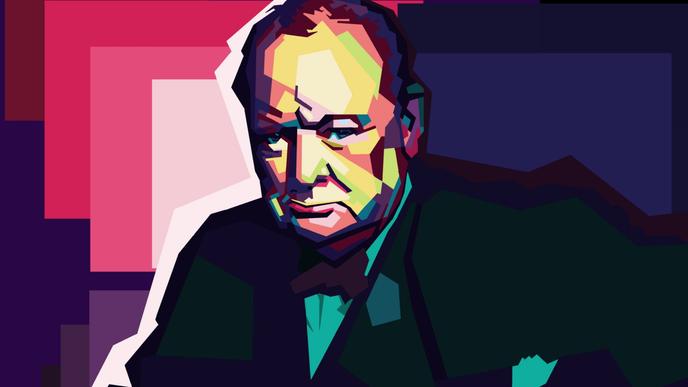
Winston Churchill went down in history not only as the Prime Minister of Great Britain during World War II, but also as an outstanding orator who was able to inspire and mobilize people in the most difficult times. His first speech as Prime Minister, delivered on May 13, 1940, before the House of Commons, went down in history as the "Blood, Toil, Tears, and Sweat" speech, thanks to his honest statement that at the moment he could offer nothing in his post except them and labor (since at that time Great Britain was in a very difficult situation, Nazi Germany had already captured most of Europe).
Thus, Churchill did not try to embellish the situation or make false promises. On the contrary, he emphasized the seriousness of the challenges facing the country, and thereby urged the population to be patient and work hard. Despite the seemingly bleak context and circumstances of the speech, Churchill, however, conveyed confidence in victory and the ability of the people to withstand any trials.
From a rhetorical point of view, Churchill used short and punchy, and therefore memorable phrases, and also operated with contrasts, metaphors and analogies to convey his thoughts to listeners. For example, he mentioned that Great Britain had already overcome difficulties and fought before, and that the experience of past generations proves that the country will stand. With the expression "sweat, blood and tears," he described what the country is going through and what it will have to endure, which immediately made clear the scale of change and crisis. Thus, if the aforementioned speech by Luther King became the embodiment of the struggle for freedom, then Churchill's speech became the embodiment of the struggle in principle, an ideal example of activating such sentiments as determination and courage.
What useful things can you borrow? Structure the speech around the challenge and the solution. Clearly identify the problem facing the audience and offer concrete steps to overcome it. Also, "break down" long thoughts into short phrases and make sure that each of them describes the solution and is tied to the problem. Don't overuse negatively colored words - although Churchill did, the situation then was military, so it required a somewhat different rhetoric. Negatively colored words such as "tears" and especially "blood" people usually do not like and subconsciously reject. Complete the speech with a call to action.
You can watch Winston Churchill's speech on YouTube.
Great Speech #3: Steve Jobs' Commencement Address at Stanford (2005)
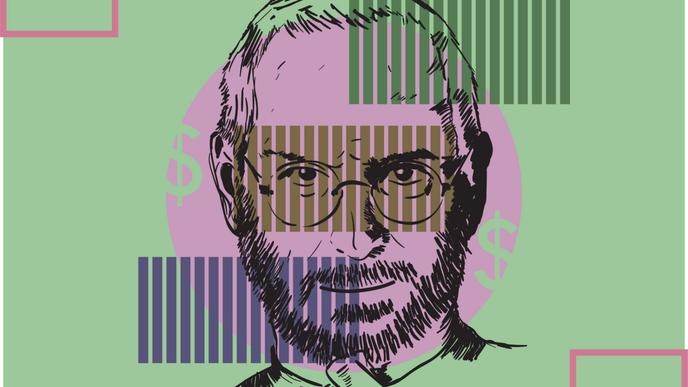
Not all great speeches necessarily change the world - speeches that can change the mindset of an entire generation and help specific people move forward are no less important. Thus, it is impossible not to recall Steve Jobs, the legendary founder and CEO of Apple. His speech to Stanford University graduates, delivered on June 12, 2005, became one of the most sensational speeches in history due to the emotional and informational wave it managed to evoke.
Jobs began his speech by telling about his life, how he dropped out of college, how he then founded Apple, how later, however, he was disgracefully fired from his own company, and how he persevered and returned. He spoke not only about success, but also about failures, about how they dare each other, and all this led to the idea of how important it is to follow your heart and do what you love. Jobs also repeatedly emphasized that only by enjoying your work can you truly become a legend. In this case, he supported his words with his own example, since the business of his life, which he had been developing since his teenage years, really completely turned the tech industry upside down.
Jobs also divided his speech into several interconnected stories: the first was dedicated to "connecting the dots," the second to love and loss (the central theme), and the third to death and the importance of remembering it. All this brought Jobs' ordinary oral speech closer to a kind of artistic story, while he did not use any terminology and jargon, limiting himself to accessible vocabulary close to the age of his audience. However, the most powerful moment of his speech was the finale, namely the completion of the entire speech with his own quote "Stay hungry. Stay foolish."
What useful things can you borrow? Try to base your speech on a completely personal story and, in addition, use humor (Steve Jobs joked several times about being expelled from college). Also, help the audience visualize what you are talking about, for example, with the help of gestures or direct phrases "Imagine you…". If you choose stories from life, then be sure to choose those that illustrate your values and beliefs, and do not contradict them or depart from the topic of the speech.
You can watch Steve Jobs' speech on YouTube.
Lectera’s Online Courses by topic
Great Speech #4: Mark Zuckerberg at Harvard University (2017)
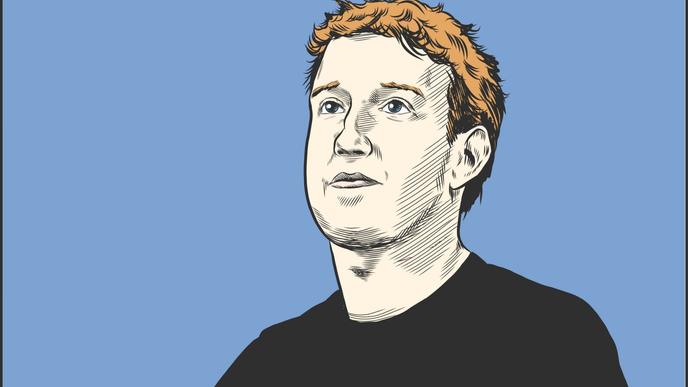
On par with Steve Jobs, Mark Zuckerberg, the founder of Meta, can be included in the list of outstanding speakers-entrepreneurs. His speech to Harvard University graduates on May 25, 2017, became not just another motivational parting word from a successful graduate returning to his alma mater, but an attempt to draw the attention of the younger generation to current problems and goals. Zuckerberg began his speech by classicly telling a personal story about the creation of Facebook in a Harvard dormitory room, but he emphasized what motivated him at that moment - the desire to connect people and make the world open. He emphasized that Facebook owes its success not only to him, but to the entire community, and urged Harvard students to dedicate themselves to making society and the world better, without limiting themselves to personal ambitions and greed.
In his speech, Zuckerberg also touched upon the problems of the education, medicine and social protection systems, and with the help of rhetorical questions ("What if we can create a society in which everyone has a purpose?") urged us to think about who and what contribution can be made to change. Thus, the core of his speech was a whole list of global problems, such as inequality and the lack of goals among the modern generation. Based on this, Zuckerberg led his speech to the fact that all his ideas are aimed at solving current problems, and he calls on Harvard graduates to become the same brave and noble leaders.
What useful things can you borrow? If you need to touch upon some important and global problem that cannot be solved alone, then emphasize just that "such a thing cannot be solved alone" and set yourself the goal of creating a close-knit community around your speech and the problem touched upon. To do this, give vivid examples (not necessarily yourself) that will inspire and make you want to follow them. You can use examples of famous personalities, idols, like the same Mark Zuckerberg. Combine the motivating function of your speech with the educational one and try to "package" some valuable and professional knowledge into your story - this way you will increase your authority in front of the public.
You can watch Mark Zuckerberg's speech on YouTube.
Great Speech #5: Cicero's "Speech Against Catiline"
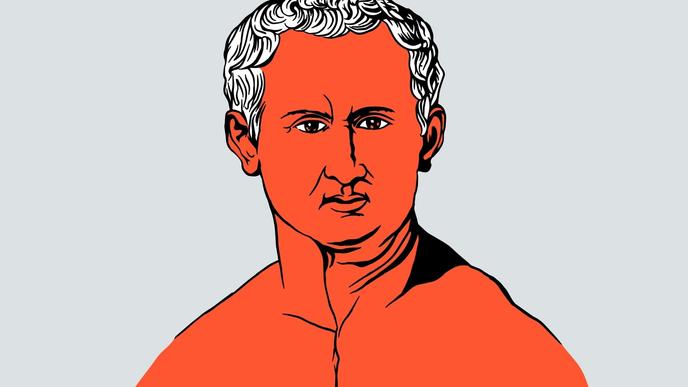
Finally, let's go back in time, to the origins of history, and recall the semi-mythical speech of Marcus Tullius Cicero, who cannot be ignored at least because he was perhaps the most famous Roman orator, and at most because one of his speeches changed the political situation in the country. Thus, his first speech against the greedy and ambitious Roman politician Lucius Catiline, delivered in the Senate on November 8, 63 BC, is one of the most famous and influential speeches in the history of Ancient Rome.
After several unsuccessful attempts to take the position of consul, Catiline organized a conspiracy to overthrow the current government and establish a dictatorship. Cicero, who held the position of consul at that time, learned about the conspiracy in a timely manner and decided to speak before the Senate in order to expose Catiline and thereby prevent a coup.
It would seem, what can words do with a whole group of people who have swords in their hands? Nevertheless, it worked. In his speech, Cicero attacked Catiline with sharp criticism, accusing him of betrayal, corruption and violence, and also described the terrible consequences of the conspiracy for the whole of Rome in the face of civil war and devastation. According to chronicles and historical sources, Cicero actively used exclamations, rhetorical questions and irony with sarcasm to cause senators not only a feeling of fear, but also disgust, and thereby humiliate Catiline and instill in him uncertainty in his actions. Thus, the most famous phrase from Cicero's speech was: "Quo usque tandem abutere, Catilina, patientia nostra?" ("How long, Catiline, will you abuse our patience?").
As a result, Catiline could not withstand public pressure and abandoned plans to seize power immediately, as he lost all even potential support. He hastily left Rome and went to Etruria to gather an armed uprising there. However, Rome was indeed saved that day. Today, Cicero's speech against Catiline is recognized as a model of political oratory using debate techniques, since Cicero's entire speech pursued an exposing goal and therefore built on a sequence of logical arguments.
What useful things can you borrow? If you happen to speak not only to someone, but also against someone, then also appeal primarily to logic, and not to emotions. Such speeches differ significantly from classical ones, since here it is important to win on a number of criteria at once, primarily intellectually. Use antithesis and rhetorical questions (Cicero was famous for them, since rhetorical questions make the opponent doubt and mentally answer what does not need to be answered). Support your statements with facts and evidence, you can build the answer according to the scheme: "Counterargument - proof - emotional summary". Engage the audience by raising moral and ethical issues in order to gain support.
Now that you have familiarized yourself with five great speeches by great people, what do you think they have in common? Different eras and completely different goals, personalities and circumstances… Nevertheless, they all have one thing in common - faith in what they are saying. Martin Luther King called for equality, Churchill for resilience, Jobs for self-realization, Zuckerberg for responsibility, and Cicero for the protection of justice. It is not necessary to become a world leader in order to become like them and also use the power of words. Start small: share your ideas, express your opinion openly, inspire others and always know what goal what you are saying is pursuing. Remember that each of us is capable of more!
Share this with your friends via:
Latest News

A significant stage in the development of the alternative education system has begun in West Northamptonshire in the UK: the County Council is actively calling on parents, guardians, and trustees to participate in shaping the future of this key area.

Outwoods Primary School in Atherstone, Warwickshire, having experienced deep sadness after the loss of their famous cat, Silla, has found solace in a new pet – a Maine Coon named Aloysius O’Hara.

In modern universities, artificial intelligence, and in particular ChatGPT, is rapidly transforming from a controversial tool into a full-fledged student assistant.

An innovative educational project is gaining momentum in UK primary schools, aiming to change attitudes towards video games.

The Massachusetts Institute of Technology (MIT) presents MIT Learn – a revolutionary online platform that opens a “new front door” to access university knowledge and resources.












 Test. Check Your Social Media Dependency Level!
Test. Check Your Social Media Dependency Level!
 Test: What Business is Right For You?
Test: What Business is Right For You?
 “I’m Here for the Long Haul”: When Loyalty to a Company Becomes Toxic
“I’m Here for the Long Haul”: When Loyalty to a Company Becomes Toxic
 Test: How Prone Are You to Abusive Behavior as a Manager?
Test: How Prone Are You to Abusive Behavior as a Manager?
 Test. What superpower would you possess if you were a superhero?
Test. What superpower would you possess if you were a superhero?
 Test. What Should You Let Go of Before Winter Ends?
Test. What Should You Let Go of Before Winter Ends?
